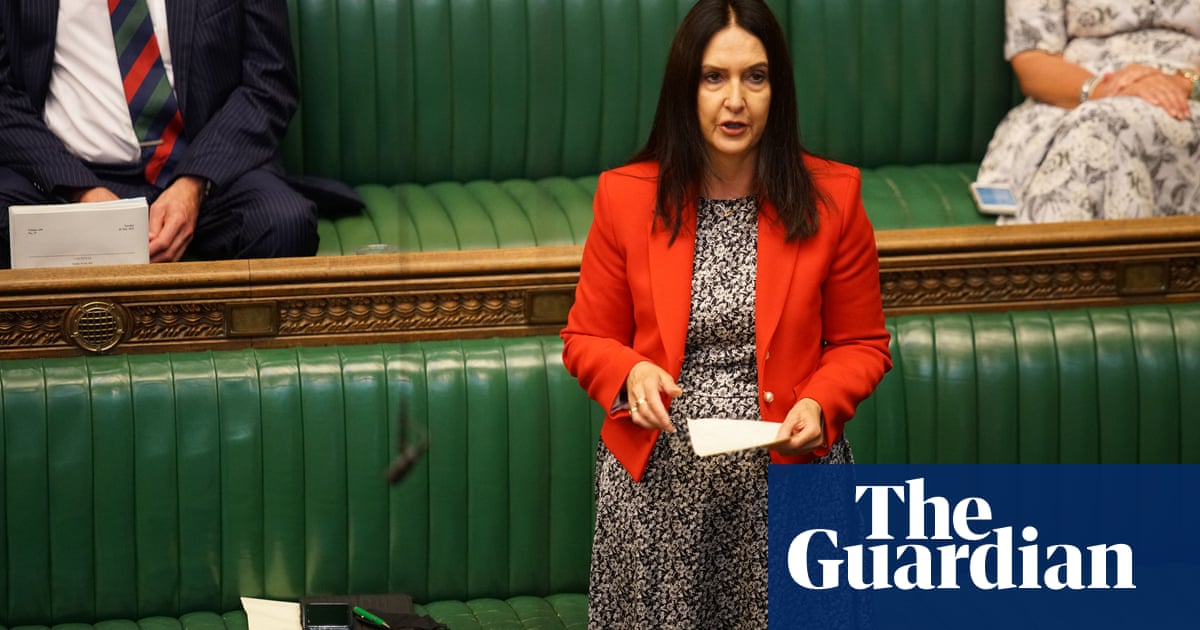
An MP who broke Covid rules in the early stages of the pandemic is facing a 30-day suspension from the House of Commons, raising the prospect of a byelection in her Glasgow seat.
Margaret Ferrier, the independent MP for Rutherglen and Hamilton West, was found by the standards watchdog to have damaged the reputation of parliament and put the public at risk when she travelled by train after testing positive.
If the recommended 30-day punishment is agreed by a vote in the Commons, it would automatically trigger a recall petition, opening up the possibility of a byelection in a seat won by the Scottish National party in 2019 and by Labour in 2017.
The length of suspension has also raised concerns among supporters of Boris Johnson, who is under investigation by the privileges committee for misleading parliament over the Partygate scandal.
The standards committee was split on Ferrier’s suspension, with three of the four Conservative MPs on the committee, which has the same membership of the one considering Johnson’s fate, plus lay members, voting against a lengthy term.
Any suspension of 10 or more working days automatically triggers a recall petition, which if signed by 10% of constituents leads to a byelection. A contest in Johnson’s Uxbridge seat would create a big headache for the Conservatives.
The Tory MP Alberto Costa, backed by Sir Bernard Jenkin and Sir Charles Walker, recommended reducing the suspension to nine sitting days, which is under the recall threshold. It prompted suggestions they could reach a similar decision in Johnson’s case.
However, the Guardian understands that the Tory MPs voted against a longer suspension not because they wanted to set a precedent for the former prime minister that would avoid him having to fight to retain his seat. Instead, it is believed they felt that Ferrier, who lost the SNP whip and was sentenced to carry out 270 hours of community service after pleading guilty to breaching Covid rules, had already paid a high enough price.
The only SNP member of the committee looking into Ferrier, Allan Dorans, also voted against a lengthy suspension. Ferrier won a majority of 5,230 at the last general election when she stood for the SNP, with Labour finishing second.
A byelection would be the first big electoral test of the new Scottish first minister, Humza Yousaf’s, tenure as SNP leader, and an opportunity for Labour to show it is resurgent in Scotland after being reduced to just one MP.
One Scottish Labour insider said the party was actively seeking a candidate and that while the SNP was “well dug in” to the constituency, the seat should be “eminently winnable”.
Yousaf said he believed there should be a byelection in Ferrier’s seat, and that he disagreed with the decision by the SNP MP on the standards committee to vote against her 30-day suspension.
He told reporters at Holyrood that he had not been aware that Allan Doran, the SNP MP for Ayr, Carrick and Cumnock, had backed the Tory move to set Ferrier’s suspension at nine days. That decision by Doran may have preceded Yousaf’s election as party leader on Monday.
“I think [Doran] should’ve backed the suspension which has been agreed by the committee. But I think the important thing is for Margaret Ferrier to finally do the right thing and stand down,” Yousaf said. “We’ve said from day one that Margaret Ferrier should’ve stepped down because of her reckless actions, [and] I look forward to fighting that byelection on our strong track record.”
In September 2020, Ferrier developed symptoms and took a Covid test, but the next day she attended church and had lunch with a family member.
Two days later, while awaiting the results of a Covid test, she travelled by train to London, took part in a Commons debate and ate in the members’ tearoom in parliament. She then travelled home to Glasgow by train the next morning, a journey of up to five hours, despite being told she had tested positive.
The parliamentary commissioner for standards, Daniel Greenberg, said Ferrier had breached the code of conduct for MPs “by placing her own personal interest of not wishing to self-isolate immediately or in London over the public interest of avoiding possible risk of harm to health and life”.
She also breached the code because “her actions commencing from when she first took a Covid-19 test to when she finally begins self-isolation have caused significant damage to the reputation and integrity of the House of Commons as a whole, and of its members generally”.












